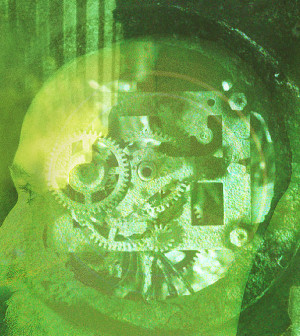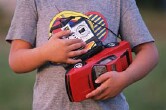- The Best Time of Day to Drink Bone Broth to Maximize Health Benefits
- 8 Ways to Increase Dopamine Naturally
- 7 Best Breads for Maintaining Stable Blood Sugar
- Gelatin vs. Collagen: Which is Best for Skin, Nails, and Joints?
- The Long-Term Effects of Daily Turmeric Supplements on Liver Health
- Could Your Grocery Store Meat Be Causing Recurring UTIs?
- Are You Making This Expensive Thermostat Error This Winter?
- Recognizing the Signs of Hypothyroidism
- 10 Strategies to Overcome Insomnia
- Could Artificial Sweeteners Be Aging the Brain Faster?
Preschoolers Beat College Kids at Figuring Out Gadgets


(HealthDay News) — When faced with a strange, new gizmo, preschoolers figured out how it worked more quickly than college students did, a new study shows.
The likely reason, according to the researchers, is that very young children may be less fixed than adults in their ideas about cause and effect.
The study included 106 young children, aged 4 and 5, and 170 college students who were asked to figure out a gadget that worked in an unusual way. They did this by placing different clay shapes on a special box to find out which shapes — single or together — could light up the box and play music.
The children were quicker than the college students to understand that unusual combinations of shapes could make the box perform, according to the study, which will be published in the May issue of the journal Cognition.
“The kids got it. They figured out that the machine might work in this unusual way and so that you should put both blocks on together,” senior study author Alison Gopnik, a developmental psychologist at the University of California, Berkeley, wrote in a column last week for The Wall Street Journal.
“But the best and brightest [college] students acted as if the machine would always follow the common and obvious rule, even when we showed them that it might work differently,” Gopnik said.
“As far as we know, this is the first study examining whether children can learn abstract cause- and-effect relationships, abstract principles about the logical form of causal relationships, and comparing them to adults,” Gopnik said in a university news release.
“One big question, looking forward, is what makes children more flexible learners — are they just free from the preconceptions that adults have, or are they fundamentally more flexible or exploratory in how they see the world?” study author Christopher Lucas, a lecturer at the University of Edinburgh in Scotland, said in the news release.
“Regardless, children have a lot to teach us about learning,” he added.
More information
The U.S. Centers for Disease Control and Prevention has more about preschoolers.
Source: HealthDay
Copyright © 2026 HealthDay. All rights reserved.










